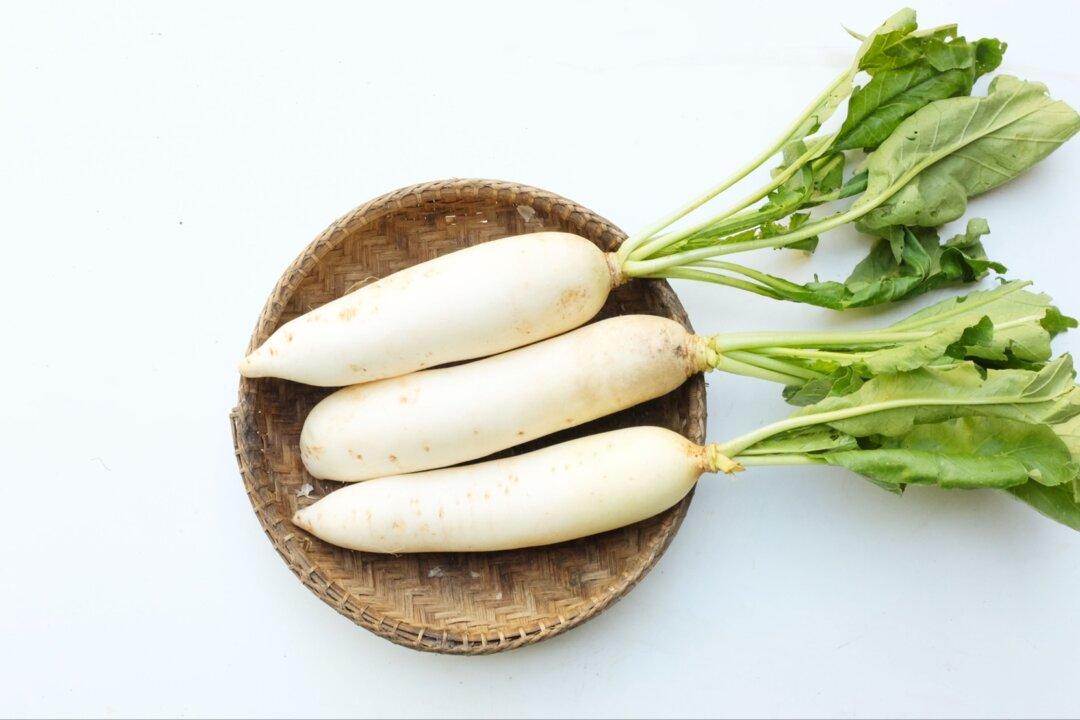An ancient Chinese saying recommends we “Eat radishes in winter.” Is there any wisdom to this adage? In this article, we will explore these benefits and discuss precautions for eating them.
1. Anti-inflammatory and Antibacterial
Radishes exhibit anti-inflammatory properties. Many chronic diseases, including arthritis, cancer, atherosclerosis, and high blood pressure, are associated with chronic inflammation. Radishes belong to the cruciferous vegetable family, and research has found that extracts from cruciferous vegetables and their purified constituents possess anti-inflammatory properties.2. Anticancer and Antioxidant
Radishes also possess anti-cancer properties. Research has found that the isothiocyanates in radishes can inhibit the proliferation and metastasis of tumors by regulating various proteins and signaling pathways. This, in turn, helps prevent the development of various types of tumors.3. Antidiabetic
Radishes can also help manage blood sugar levels. Research has indicated that radishes enhance antioxidant defense mechanisms, reduce oxidative stress and lipid peroxidation, promote glucose uptake and energy metabolism, improve hormone-induced blood glucose regulation, and decrease glucose absorption in the gut, demonstrating potent anti-diabetic effect.Why Eat Radishes in Winter?
According to TCM theory, most foods are categorized as having either cold, hot, or neutral properties. Eating cold-natured foods imparts a cooling effect, while hot-natured foods provide warmth. Therefore, maintaining equilibrium in the body involves balancing the intake of cold and hot-natured foods.In TCM, radishes are considered “cold” in nature. Given that winter is already quite cold, why is there a saying that encourages eating radishes in winter?
The saying, “Eat radishes in winter,” refers to specific conditions. During the cold winter weather, people tend to preserve heat in their bodies and eat hot-natured foods, such as stewed lamb and beef. This can lead to excessive heat in the body. Incorporating radishes, known for their cooling nature, helps balance out the heat from other foods.
Things to Consider When Eating Radishes
While radishes offer numerous benefits, there are some considerations to be made when eating them.1. Eating raw radishes can potentially irritate the digestive tract. Individuals with conditions such as gastric ulcers or gastritis should be mindful and avoid eating radishes in their raw form.
2. People taking anticoagulants should moderate their radish intake due to the blood-clotting properties of vitamin K found in radishes.
In summary, from a Western medicine standpoint, radishes are recognized for their anti-tumor, anti-inflammatory, blood-sugar-lowering, and liver-protective properties. In traditional Chinese medicine, radishes are believed to clear heat, detoxify, dispel phlegm, suppress cough, moisten the lungs, and promote digestion. Therefore, apart from the specific groups mentioned above, incorporating radishes into your diet can offer significant benefits in terms of both energy and nutritional value. As the winter season approaches, consider adding some radish to your meals for overall health enhancement.








